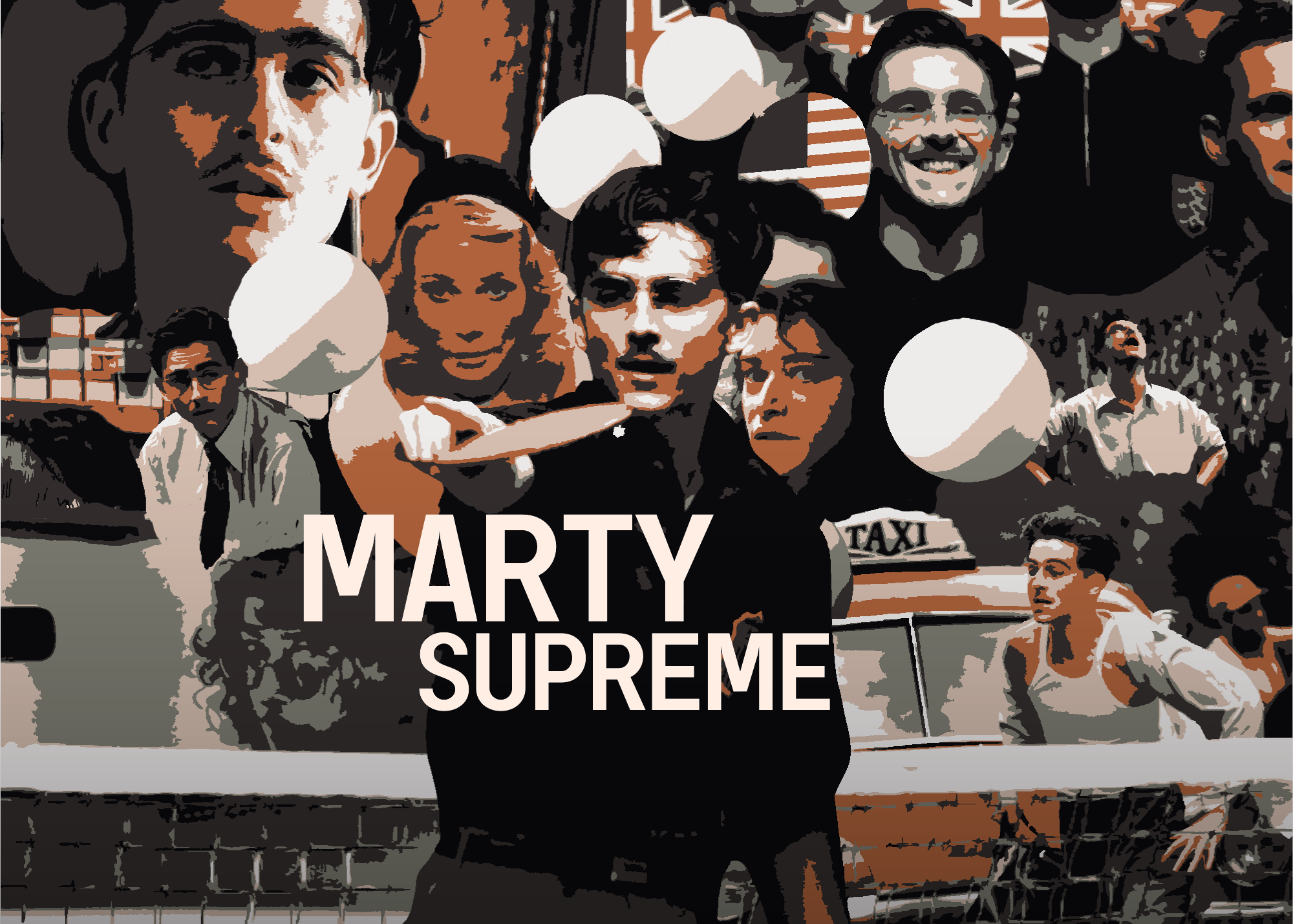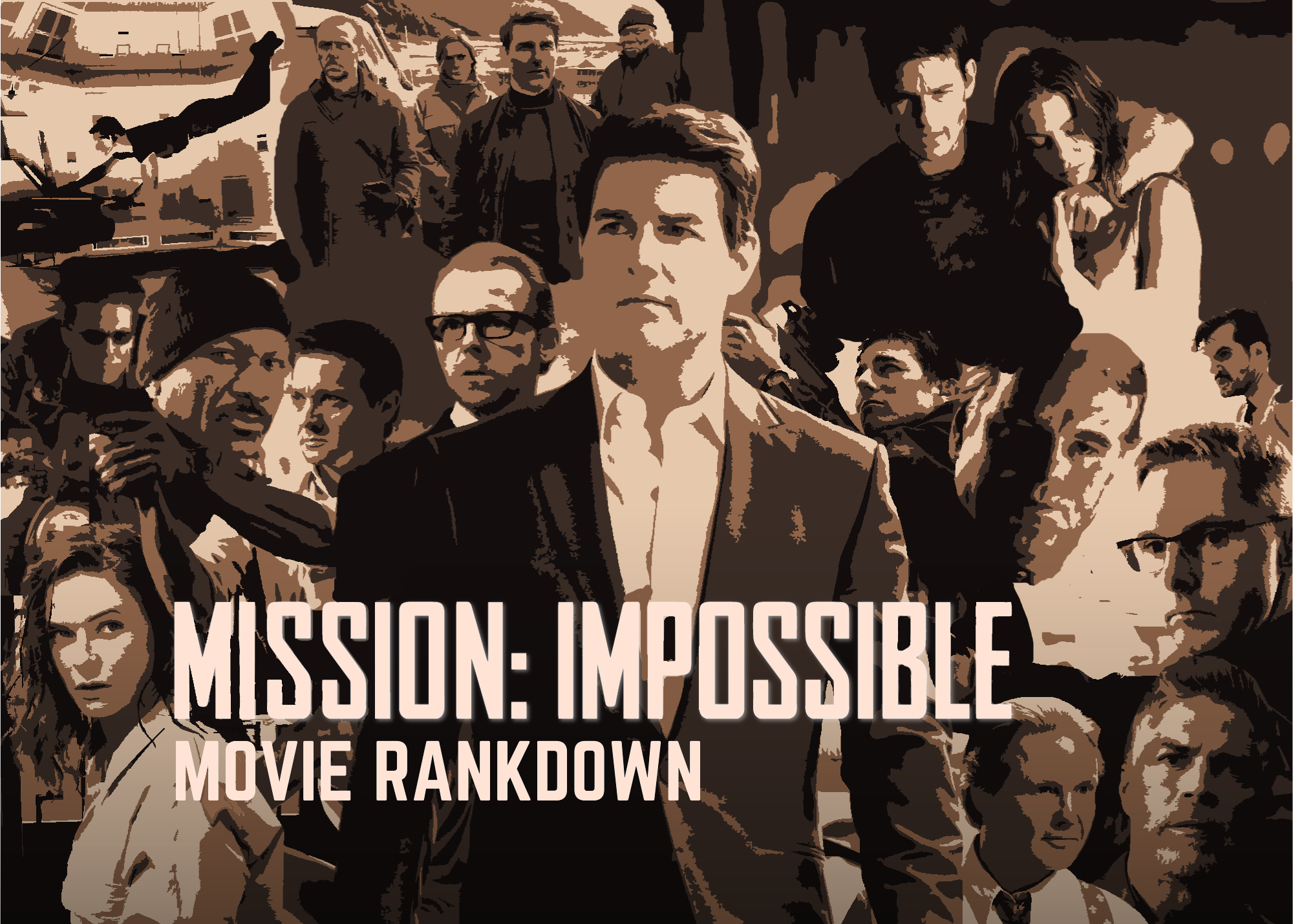"Anora" Review: So Close, Yet So Far Away
Sean Baker's latest flick is almost brilliant, but it comes up just short.
Recent ReleaseOn June 2, 2010, Detroit Tigers pitcher Armando Galarraga toed the rubber in the top of the 9th inning. Stepping into the batter’s box was Cleveland Indians’ utility infielder, Jason Donald. Galarraga had retired the previous 26 batters, leaving him one out away from recording the 21st perfect game in MLB history.
On the 1-1 pitch, Donald hit a ground ball to second base, cut off by first baseman Miguel Cabrera. Galarraga rushed to cover first base as Cabrera fired the history-making throw. Galarraga caught the ball, beating Donald by a step.
Umpire Jim Joyce called him safe.
For all of Galarraga’s wizardry, Austin Jackson’s incredible catch, and the sheer amount of luck that goes into pitching a perfect game, it only took one thing to spoil something amazing. Galarraga retired the next batter, preserving the complete game shutout, but the perfect game was gone.
It’s an unfortunate but common occurrence. No matter how incredible something can be, no matter how many things go right in the quest to manifest, if one thing goes wrong, no matter how big or small, the entire venture can fail; what replaces it, while still impressive in its own right, is nothing compared to what could have been.
The same can be true of relationships. In matters of love, everybody has an opinion, many of which contradict each other. We should date for stability or passion. We should find someone who supports us unconditionally or challenges us incessantly. We should overlook the minor red flags or run at the sight of even one.
The one piece of advice everyone agrees on is that while you should date for many things, you should never date for potential.
Anora “Ani” Mikheeva, the protagonist of Sean Baker’s new film, Anora, did not get this memo. A 23-year-old stripper living in Brighton Beach, a Russian-American neighborhood in Brooklyn, Ani’s fortunes seemingly change when she meets Ivan “Vanya” Zakharov, the 21-year-old son of a Russian oligarch. Determined not to return to his home country and begin working at his father’s company, Vanya, after a week of drunken debauchery and jackhammering sex, proposes to Ani. She accepts, angering Vanya’s parents and forcing them to send henchmen to bring Vanya back to Russia as a single man.
On paper, Vanya overflows with potential, at least to someone like Ani. While she never externalizes a desire to ditch the pole, thus hinting at an inner self-loathing her relationship with Vanya will wash away, it’s a simple matter of dollars and cents. Ani’s exchanges have, to this point, been transactional. She gives and receives, as do her customers. Vanya is the ultimate manifestation of this principle: his lovemaking ability is substandard at best, mindlessly thrusting at hyperspeed in a frantic desire to climax; Ani shows him another way, how to be slow and methodical, intensifying the sensation and maximizing the pleasure. His response? “I think I love you.”
In return for her sexual compliance and incessant partying, Vanya will use her as the vessel through which he will escape his parents’ clutches, avoid the responsibility of his father's legacy, and Peter Pan his life in the comfy confines of his New York mansion. It is the ultimate transaction.
Herein lies the rub, one that anyone who's watched Baker’s Red Rocket will be disappointed to hear: Anora’s credibility lies solely in whether Baker firmly establishes this dimension of Ani’s psyche, thus making her journey in the film one that earns its emotionally tragic ending. Sadly, he doesn’t, and in the most damaging way possible.
In life, we abide by something called the “five-second rule.” If you drop food on the floor, you have five seconds to pick it up before it becomes inedible. In screenwriting, a similar idea exists: the “five-minute rule.” Essentially, viewers can tolerate not having a concrete sense of who, what, when, where, and why for approximately five minutes before they lose patience. If you can’t capture their interest and hold it within that time frame, your movie is lost.
Anora is unofficially divided into three distinct acts. The first, which introduces Ani’s life as a stripper, where she’s a popular act but struggles to establish long-term financial security, is sluggish. It’s approximately 40 minutes of tedium, an endless barrage of sex scenes and partying. You begin to wonder where precisely Baker is taking us and if there wasn’t a shorter, but still effective, means of travel. A well-crafted film can seem initially unsure of itself but ultimately show it was self-aware from the beginning and justify each decision. Unfortunately, Anora falsely believes its opening act effectively laid the foundation for all that was to follow; that miscalculation sinks what would otherwise have been a fantastic film.
It’s not uncommon. Great films are difficult to make, which is why, despite incessant overuse of the word “masterpiece,” there are so few. Some films start well but make questionable choices that render them tedious. Some start poorly and struggle to gain their balance. Some are horrible from the start and never even show glimpses of anything else. Anora spends too much time establishing something it never sells us on, and thus it suffers from one of the most damning fates: needing us to do the heavy lifting.
Sure, many appreciate when a film makes us draw conclusions and piece things together, but that’s something you have to concede more than acclaim. We can pontificate, but when movies leave so much responsibility on the viewer, it’s ordinarily due to poor storytelling, not some disguised genius.
It’s a shame; when Anora settles into its third act - when Ani and Vanya’s father’s henchmen locate the spoiled heir - it’s brilliant. Mikey Madison shines, and the realism that makes Baker so dependable is compelling. The comedy of the second act, which hits as often as it misses, fades away, and the film stabilizes, stripping away the frenetic energy for something more straightforward and contemplative.
It’s a movie that, although you’re waiting for it to end after that overdrawn first act (and make no mistake, this is not a well-paced movie), makes you feel like everything that came before did mean something, even if the whole thing could’ve been executed significantly better. We find a deep tenderness within Ani, and Yuriy Borisov makes Igor, one of the henchmen, the perfect character for her to use as an unintentional emotional sounding board. She fights him off at every turn, but he’s simply a genuine and empathetic person, one that’s impossible for her to figure out. He doesn’t have an ulterior motive regarding someone whose life is funded by men with ulterior motives, albeit ones that are simply a thread in the fabric of her profession.
As such, the duo’s dynamic unearths something worth investigating about Ani’s life, how her living has shaped her perspective on the things that matter most, and whether it’s even possible, all of the nonsense with Vanya aside, to correct course.
Unfortunately, it all goes back to its opening act. If Baker is going to convince us that Ani’s whirlwind downward spiral is affecting, we have to believe that she believes her “romance” with Vanya is authentic. We must believe she sees it as a genuine love affair, not a ticket out of the doldrums. Unfortunately, it never feels like Baker decided Ani’s mindset, so she feels like a young woman chasing greenbacks, not someone believing in the improbable to make her dreams a reality. It doesn’t make her ultimate fate particularly sympathetic, or at least one that sends a message.
Yes, you could argue it’s about how Ani’s sex work has made all relationships transactional, and Vanya inadvertently capitalized on her trauma and vulnerability by creating a scenario that would feel like love. You could argue it’s a tale of how the poor squabble amongst themselves at the behest of the wealthy as you watch the henchmen lose their sanity chasing after someone they despise so they can get paid by people whose approval they desperately seek, all while destroying the life of a young woman who wants something better for herself.
Sadly, one can argue about anything. You could argue that the sky is green and the grass is blue. You’d lose, but you could still argue. Acclaim should be earned, not given simply because we want to like something on principle. Anora ends well and is so brilliant in its final act that you depart knowing Baker was one mistake away from a film worthy of the Best Picture Oscar it’s poised to win. Alas, as Armando Galarraga could tell you, no matter how many things you get right, it only takes one wrong choice to derail something magical. Therefore, Baker has only a good movie that squanders its potential.

62
Director - Sean Baker
Studio - Searchlight
Runtime - 139 minutes
Release Date - October 18, 2024
Cast:
Mikey Madison - Anora “Ani” Mikheeva
Mark Eydelshteyn - Ivan “Vanya” Zakharov
Yura Borisov - Igor
Karren Karagulian - Toros
Voche Tovmasyan - Garnik
Aleksei Serebryakov - Nikolai Zakharov
Darya Ekamasova - Galina Zakharova
Lindsey Normington - Diamond
Editor - Sean Baker
Screenplay - Sean Baker
Cinematography - Drew Daniels
Score - Matthew Hearon-Smith

%20(13%20x%206%20in)%20(13%20x%204%20in).png)

.jpeg)







































.png)






.png)
